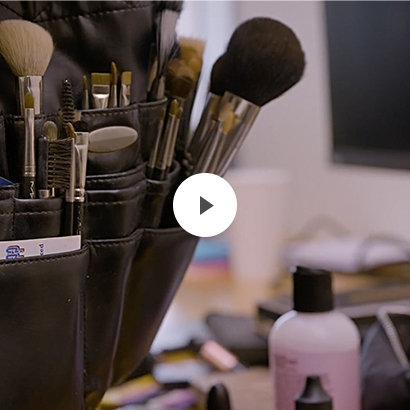Hatch Apps’ low-cost system aims to “democratize” the process of software development.
Param Jaggi and Amelia Friedman showed their business acumen early.
At age 12, Jaggi created a device that used algae to reduce carbon emissions from car exhaust, and later sold his invention to an automotive company. As a college student, he built websites and apps for clients.
Friedman, meanwhile, had several entrepreneurial endeavors as a teenager, among them the Student Language Exchange, a company that offered courses in underrepresented languages like Swahili, Bengali and Thai.
She and Jaggi met in Washington, D.C., through the Halcyon Fellowship and teamed up to launch Hatch Apps. The company lets customers deploy apps without writing a line of code or hiring dedicated, expensive developers.
Hatch Apps’ customers can create a template, then drag, drop and deploy an app to iOS, Android and the web for a fraction of the cost of a custom-designed app—which can run to more than $100,000, depending on the complexity of the project and the ongoing maintenance fees.
Dorm-Room Innovation
The idea grew out of Jaggi’s dorm room experience. “I was working as a software freelancer, and I was charging $10,000 to $30,000 for apps that were taking me a weekend to build,” he says. “What I realized is that as a 19-year old, I was in the background copy-pasting code and using off-the-shelf solutions to build things that were not that complex.”
The team’s inventive solution is why Hatch Apps was chosen to participate in Morgan Stanley Inclusive Ventures Lab, which provides multicultural and women entrepreneurs with a $200,000 investment plus mentoring, office space in the firm’s headquarters, and a full curriculum of training and coaching.
Through the Multicultural Innovation Lab, Hatch Apps is gaining introductions to potential investors and enjoying, as Jaggi puts it, “the prestige of the Morgan Stanley brand.” One of the most valuable parts of being selected to participate, he says, is that “the investment community understands the level of due diligence that the firm will do in order to put their name behind us.”
Democratizing the App Space
For years, there were limited options if you wanted to create an app. Typically, you would have to hire a high-priced developer, hire your own team, or learn to code. “What we’ve seen, more often than we would like, is people who are coming into our office after spending $200,000 for a software product, with very little to show for it,” Friedman says. “That’s a very common story in our space.
Hatch Apps provides an alternative: Its code is modular, not built from scratch every time a new client needs an app. “The role we look to play,” Friedman says, “is to offer an option that is more affordable but doesn’t sacrifice quality and control.”
Jaggi puts it this way: “We’re democratizing software development for the masses and empowering the next generation of creative minds.”
At least in part, the Hatch Apps co-founders credit their success to their complementary skill sets. Jaggi devotes his attention to the product and technical side of the enterprise. Friedman is focused on building an expansive network, crucial for attracting press and advice from people who’ve been down this road before.
“There are new challenges at every stage of starting a company,” Jaggi says. “First, you have to properly incorporate. Then, you have to hire the right business partners and team members. Then, you have to figure out a prototype to test the market. There’s been a learning curve every step of the way.”



